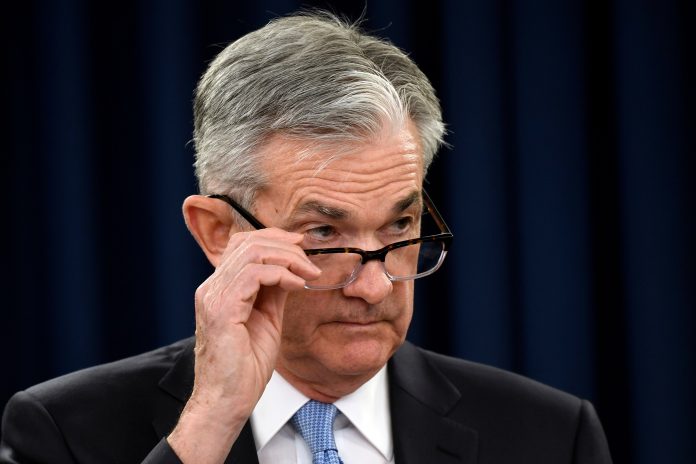Fed signals possible interest rate cut
U.S. futures tipped Wall Street for a higher open on Wednesday, after Federal Reserve chairman Jerome Powell said the central bank is prepared to respond if it decides the ongoing trade tensions are hurting the economy.
“We do not know how or when these trade issues will be resolved,” Powell said during a Fed conference in Chicago on Tuesday. “We are closely monitoring the implications of these developments for the U.S. economic outlook and, as always, we will act as appropriate to sustain the expansion.”
Market participants read his comments as a signal that interest rates could likely come down later this year. As of 6:14 a.m. ET Wednesday, futures on the blue-chip Dow were seen gaining 171.5 points, or 0.68% to 25,517.5.
Futures on the tech-heavy Nasdaq 100 climbed 63.87 points, or 0.89% to 7,243.12 while those on the broader S&P 500 were up 18.88 points, or 0.67% to 2,823.88.
U.S. and Mexican negotiators to meet at the White House
U.S. and Mexican officials will meet at the White House on Wednesday, a few days before President Trump’s 5% tariff on all goods coming from the southern neighbor goes into effect.
Vice President Mike Pence will host the talks, which are aimed at forcing Mexican authorities to do more to stop illegal immigration. Trump has vowed to impose the tariffs on June 10 and hike them to 25% by October unless Mexico clamps down on the migrants.
Republican and Democrat lawmakers have warned the President that the tariffs could hurt American business and consumers, and scuttle the new free trade deal between the U.S., Mexico, and Canada.
Rise in U.S. inventories drags oil prices lower
Oil prices continued to fall Wednesday, as an unexpected rise in U.S. crude stockpiles dampened investor sentiment. West Texas Intermediate futures, the U.S. oil benchmark, was down $0.50 to $52.98 per barrel as of 4:53 a.m. ET. Brent crude, the international oil benchmark, lost $0.29 to $61.68 per barrel.
U.S. crude inventories jumped unexpectedly last week, according to figures released by the American Petroleum Institute (API) on Tuesday. In the week ended May 31, crude stocks increased by 3.5 million barrels to 478 million barrels. Analysts had predicted a decrease of 849,000 barrels.










